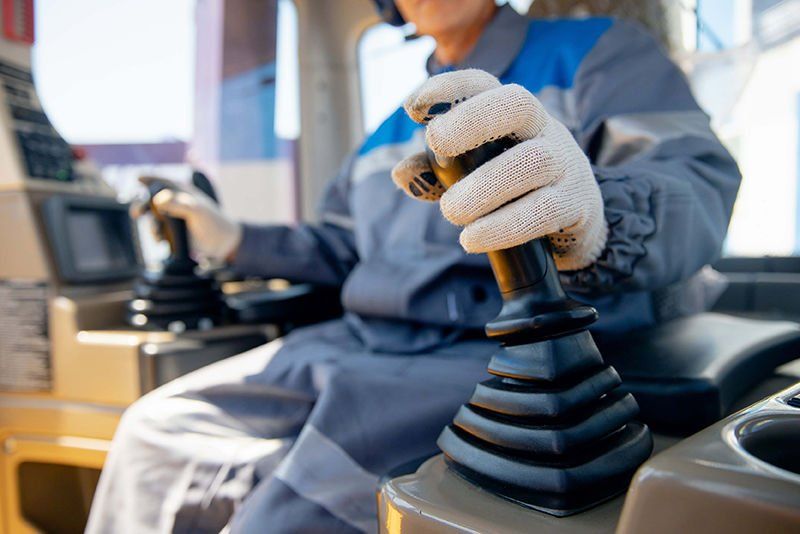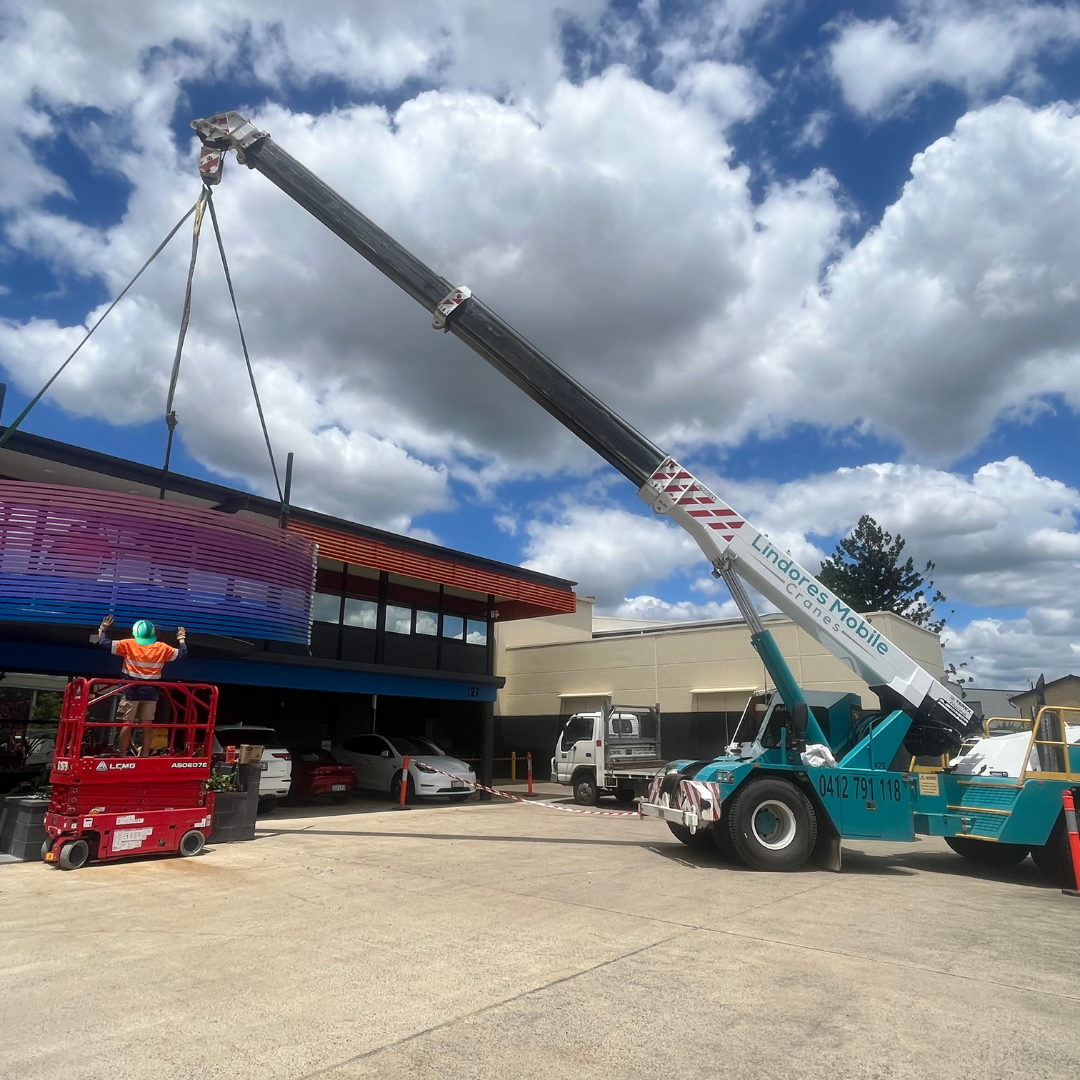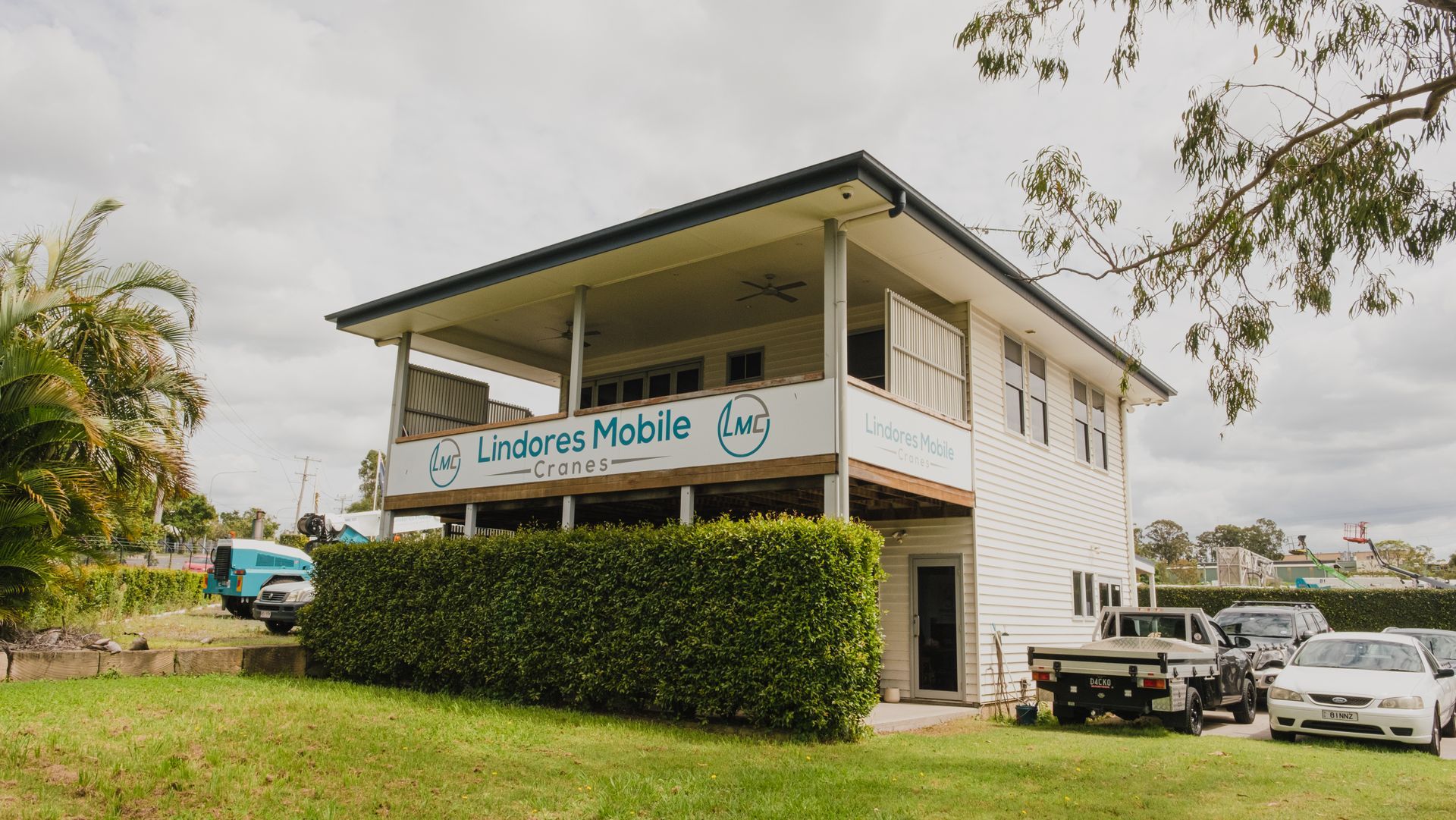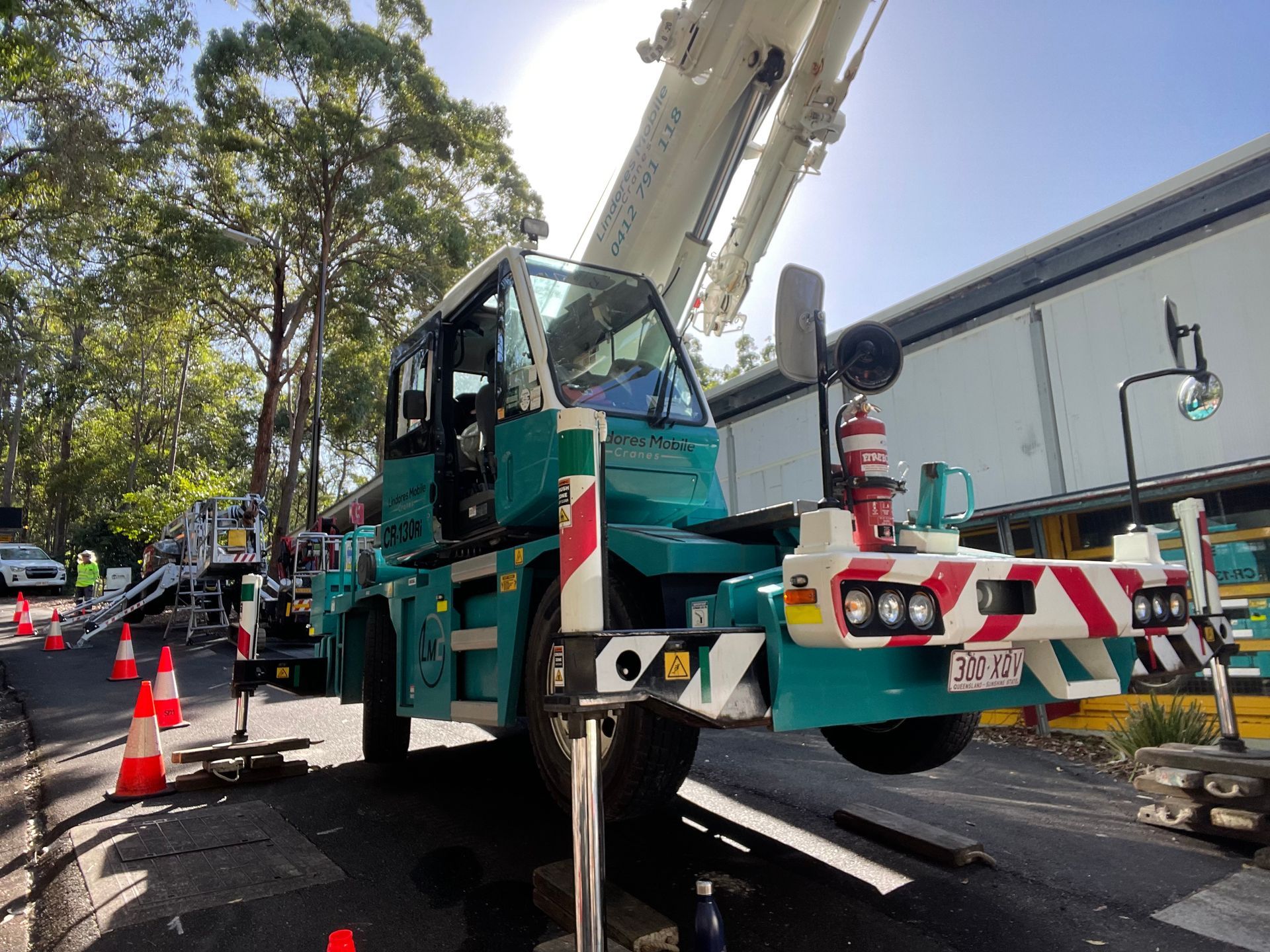What It's Like To Be A Crane Operator

While there's ups and downs in just about every type of job, a typical day in the life of a crane operator isn't necessarily what you would expect.
In Australia, the construction sector is big business. To describe what the industry encompasses, the term generally focuses on the construction, demolition, renovation, maintenance or repair of buildings and infrastructure. It covers a wide range of services, from planning and surveying to structural construction and even to finishing services such as painting and decorating.
The construction industry also generates over $360 billion in revenue every year, producing around 9% of Australia’s gross domestic product, and has a projected annual growth rate of 2.4% in the next five years. If you’re new to the workforce or are considering a career change, one of the most exciting ways to jump on the construction bandwagon is by becoming a crane operator - but what exactly does it involve?
Your Guide To Working As A Crane Operator
In today’s construction landscape, a crane is a machine that is used to lift and move heavy loads, other machines, materials, and goods for a variety of purposes. From construction to manufacturing to shipbuilding and material loading, cranes are used in a wide variety of settings, sectors and projects.
Mobile cranes are an instrumental piece of equipment that are generally controlled by pulleys and cables, and are either truck mounted or a complete machine with the boom attached, such as the Humma crane. However, these glorious machines need someone to guide them as a means to safely get the job done, which is where the knowledge and skills of a crane operator come in.
In a nutshell, the day to day duties of a crane operator are to safely and efficiently move and deliver large objects and equipment using a crane. Though it may sound simple enough, this job comes with a range of responsibilities such as:
- Checking that ground conditions are suitable for the lift before the crane is set up
- On site set up of the crane such as the set up and levelling of outriggers
- Ensuring that the capacity of the crane is sufficient to safely carry the load
- Checking that weather conditions are suitable for the lift
- Identifying and addressing any obstructions that could potentially hinder the lift
- Inspecting the crane before use to ensure that it’s in good working condition
- Positioning the hook for doggers to attach loads, and chains, etc.
- Controlling the movement, speed, and positioning of the load
- Checking for damage or wear, lubricating ropes and winches and replacing worn cables
- Ensuring that all associated safety procedures are followed
If you’re considering a new career as a crane operator, the good news is that these types of positions have a very favourable 5.4% job growth outlook over the next five years. Along with some pretty hefty salary options on offer depending on your experience and qualifications, it’s even more interesting that Seek also reports that crane operators rank their job satisfaction at 4.1 out of 5 on average.
Ultimately, a good crane operator is someone that is mechanically minded, knows how to communicate effectively, pays attention to detail, and always puts safety first. A reputable industry professional will not only have the credentials and licencing to back this up, but will also be all too happy to show these to potential clients as well.
Working With A Reputable Mobile Crane Hire Supplier
Lindores Mobile Cranes (LMC) is a mobile crane and labour hire business that has unequalled experience in the construction industry spanning two generations. In operation since 2009, we’re a family owned business and are also proud owners of Brisbane’s only Humma crane.
At LMC, we pride ourselves on knowing what our customers require, and aren’t afraid to think outside of the box with suggestions in order to reduce costs and increase productivity. If you would like to explore your options regarding crane hire in South East Queensland or aren’t quite sure where to start, get in touch with us today.
The Liftout

At Lindores Mobile Cranes , we understand that the key to safe and efficient crane operations is regular preventive maintenance. By staying proactive, we minimise downtime, prevent costly repairs, and ensure our fleet remains in peak condition. Keeping our equipment in top-notch shape allows us to deliver the best possible service to you! Why is Preventive Maintenance Essential? Our cranes handle heavy loads daily and operate in demanding environments, which makes regular maintenance a top priority. Through routine inspections and servicing, we identify potential issues before they escalate, ensuring compliance with industry safety standards and extending the lifespan of our equipment. How Do We Maintain Our Cranes? Thorough Inspections We conduct daily and weekly checks on hydraulic systems, cables, brakes, and structural components to catch early signs of wear and tear. Lubrication and Fluid Monitoring Keeping our cranes properly lubricated and maintaining hydraulic and engine fluid levels helps us prevent mechanical failures. Routine Load Testing We regularly test our cranes to ensure they can safely handle the specified loads without risk of malfunction. Ongoing Operator Training Our experienced operators are trained to spot potential mechanical issues early, allowing us to address them before they cause disruptions. What are the Long-Term Benefits for Our Clients? ● Enhanced Safety – Our commitment to maintenance reduces the risk of accidents, protecting both our team and our clients. ● Operational Reliability – Well-maintained cranes mean fewer delays and smoother project execution. ● Cost-Effectivenes s – By preventing major breakdowns, we save on expensive emergency repairs and ensure competitive pricing for our services. Our Promise to You.. At Lindores Mobile Crane s, we take pride in maintaining a fleet that meets the highest standards of safety and efficiency. Our preventive maintenance program is more than just routine checks—it’s a commitment to delivering reliable, high-quality service every time you work with us. Why Choose Lindores Mobile Cranes ? When you partner with us, you’re choosing a team that values personalised service, unwavering dedication to safety, and a strong connection to the local community. As a family-owned business, we bring a level of care and expertise that sets us apart. Experience the difference our commitment makes— contact us today at lmcops@lmcranes.com.a u to learn more about our crane services.

At Lindores Mobile Cranes , cranes are in our DNA. We are a family-owned and operated company, dedicated to bringing you the best service. Our tight-knit team of skilled crane drivers, riggers and operations crew are passionate about delivering a personable experience that’s a cut above the rest. When selecting a crane service provider, opting for a family-owned and operated business like Lindores Mobile Cranes offers distinct advantages that can significantly enhance your project's success. In this blog, we outline some of the key benefits of working with a family-run company. Personalised Service Family-owned businesses often provide a level of personalised attention that larger corporations may lack. At Lindores Mobile Cranes , we take the time to understand each client's unique needs, ensuring tailored solutions that align with specific project requirements. Commitment to Quality and Safety With a family name associated with the business, there's an inherent commitment to maintaining high standards. We prioritise safety and quality in all operations, adhering to strict industry protocols to protect both our clients and team. Flexibility and Responsiveness Family-run operations can adapt quickly to changing project dynamics. Our team at Lindores Mobile Cranes is empowered to make swift decisions, allowing us to respond effectively to unforeseen challenges and keep your project on track. Deep Community Roots Being a family business, we have deep ties to the South East Queensland community. This local presence fosters trust and reliability, as we are invested in the success and development of our area. Long-Term Relationships We value building lasting relationships with our clients. Our family-oriented approach means we strive for repeat business and referrals, motivating us to exceed expectations consistently. Choosing Lindores Mobile Cranes means partnering with a team that offers personalised service, unwavering commitment to quality and safety, and a deep understanding of the local community. Experience the difference that a dedicated family-owned business can bring to your project. Enquire about our cranes today by contacting lmcops@lmcranes.com.au.

Operating mobile cranes is a critical part of many construction and industrial projects, but it comes with significant risks. Mistakes in crane operation can lead to project delays, equipment damage, or even serious injuries. At Lindores Mobile Cranes , safety and efficiency are at the core of what we do. Below, we’ll explore some of the most common mistakes in mobile crane operation and share how our team actively mitigates risks and prioritises safety on every lift. 1. Improper Site Inspection The Risk: Failure to assess the job site properly can result in uneven ground, insufficient clearance, or interference with nearby structures or power lines, all of which increase the risk of accidents. Our Solution: Lindores Mobile Cranes conducts thorough site inspections before every project. Our experienced team assesses the terrain, identifies potential hazards, and ensures the site meets all safety requirements. This proactive approach minimizes risks and ensures smooth operations from the outset. 2. Exceeding Load Capacities The Risk: Overloading a crane beyond its capacity can compromise stability, leading to equipment failure or tipping accidents. Our Solution: Our team rigorously calculates load weights and matches them with the crane’s capacity. We use advanced load-monitoring systems to double-check weight distributions in real-time. Additionally, our operators are fully trained to understand and adhere to each crane’s load chart. If necessary, we use multiple cranes to lift objects, ensuring sufficient lifting capacity and safe weight distribution. 3. Neglecting Proper Equipment Maintenance The Risk: Poorly maintained cranes are more prone to mechanical failures, which can cause downtime or dangerous malfunctions during operation. Our Solution: At Lindores Mobile Cranes , regular maintenance is non-negotiable. Our cranes undergo routine inspections and servicing by qualified technicians. We maintain detailed maintenance records and replace any worn parts before they become a problem, ensuring our equipment is always in peak condition. 4. Inadequate Operator Training The Risk: Untrained or under-qualified operators may misinterpret signals, improperly maneuver loads, or fail to respond correctly in high-pressure situations. Our Solution: We only employ certified and highly experienced operators. New employees receive consistent and thorough training and mentorship from senior members of our team, to ensure they uphold our high standard of service and operation. Additionally, our team is continuously trained and updated on the latest industry standards and safety protocols. 5. Ignoring Weather Conditions The Risk: Operating a crane in high winds, heavy rain, extreme temperatures or low-visibility heightens the risk of accidents, equipment damage and load instability. Our Solution: Weather conditions are always factored into our planning process. If conditions are deemed unsafe, we communicate transparently with our clients to reschedule operations. Our priority is always safety. 6. Failure to Use Proper Rigging The Risk: Improper rigging or using damaged lifting equipment can result in dropped loads, endangering workers and equipment. Our Solution: Our team is trained to select and inspect the right slings, shackles, and hardware for each lift. We follow strict rigging protocols to ensure every load is secure and balanced before lifting begins. 7. Poor Communication on Site The Risk: Miscommunication among team members can lead to errors in load handling, positioning, or crane operation, increasing the likelihood of accidents. Our Solution: We prioritise clear and consistent communication on all our job sites. Our operators, riggers, and ground crews use standardized hand signals and two-way radios to stay in constant contact, ensuring everyone is on the same page. Why Choose Lindores Mobile Cranes? At Lindores Mobile Cranes , we don’t just operate cranes – we deliver peace of mind. By prioritizing safety, meticulous planning, and industry-leading expertise, we ensure every lift is executed flawlessly. When you partner with us, you’re choosing a team committed to excellence, precision, and the highest safety standards. Ready to make your next project safer and more efficient? Contact Lindores Mobile Cranes today and experience the difference. For all enquiries, please contact lmcops@lmcranes.com.au.
